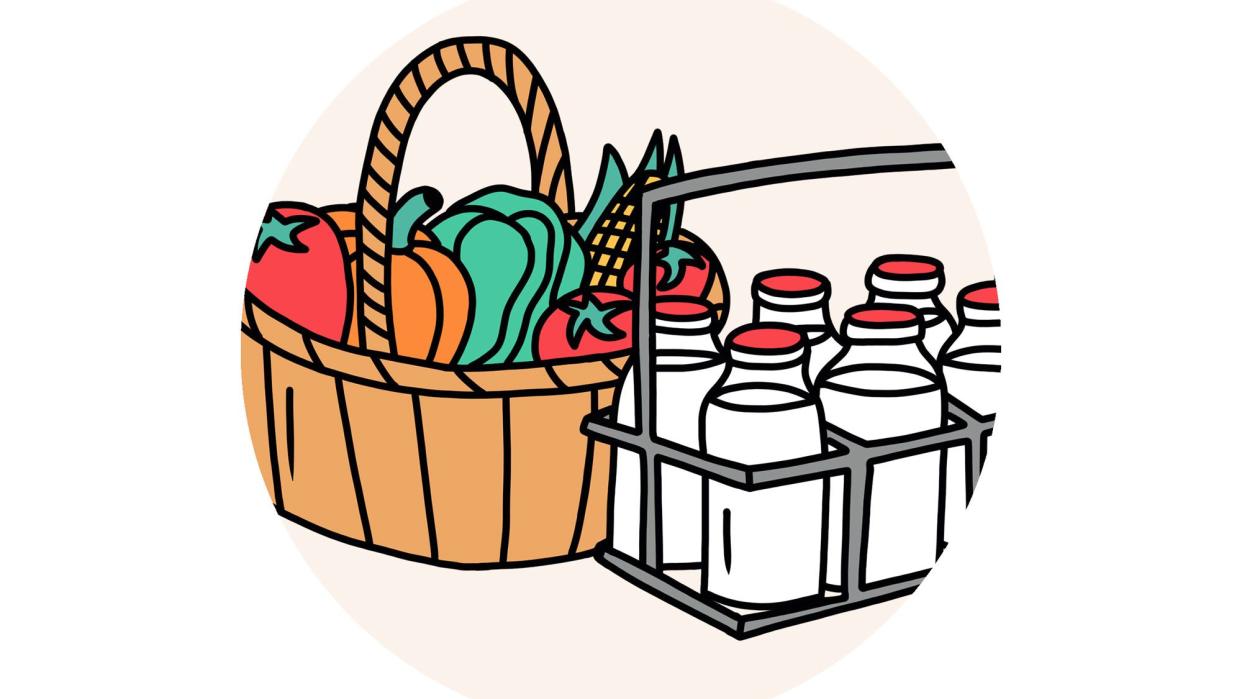F&W Game Changers: The Sustainability Champions

Illustration by Gabriel Hollington
From Zero to Hero
Launched in 2015 by Anthony Myint and Karen Leibowitz and named "Humanitarian of the Year" by the James Beard Foundation in 2020, Zero Foodprint crowd-funds grants by restaurants and customers for farmers to switch to renewable, regenerative farming practices. Restaurants that partner and opt into their Restore program allow customers the option to pay 1 percent of their bill forward toward regenerative farming initiatives for growers and producers. "The general public is really hungry for climate action that they can take that feels good, part of a positive change," says Leibowitz. "If you can eat food and contribute to farmers making their land more sustainable, more profitable for small farmers, more climate resilient and it's just a few cents, people go for it."
READ MORE: Food & Wine Game Changers: 25 People and Companies Changing the Way We Eat and Drink
An Imperfectly Perfect Model
California-based Imperfect Foods works hard toward its motto for a "kinder, less wasteful world." The company rescues surplus foods and "misshapen" produce from the supply chain that would otherwise go to waste, repurposes it and delivers it to customers nationwide, cheaply and efficiently. As supply chains were thrown into chaos during the pandemic, Imperfect Foods swooped in, purchasing everything from fresh vegetables that were pre-chopped for closed restaurants, movie theater popcorn-even cheese and snack trays en route to now canceled flights-that would otherwise be destined to landfill. "We believe no one should be priced out of great food, and everyone should have access to fresh fruits and vegetables," says Maddy Rotman, Head of Sustainability.
Plastic-Free Pantries
Operating on a milkman model, Zero Grocery allows customers to purchase high-quality, often locally sourced meat, fish, dairy, and produce in reusable packaging and glassware by partnering directly with producers. Once customers have finished their products, the empty containers are picked up from their doorstep for reuse as their next delivery is dropped off. Zuleyka Strasner founded the company in 2019, being moved to action after watching single-use plastic trash wash up on the beaches of Nicaragua. "We begin working with those vendors at the point of packing and distribution to build our own supply chain that is green and sustainable, to enable these products to come to market plastic-free," says Strasner. Based in the Bay Area, Zero Grocery, recently expanded to Los Angeles, is continually bringing more farmers and producers onboard in their goal of "leading the zero-plastic movement, one pantry at a time."

